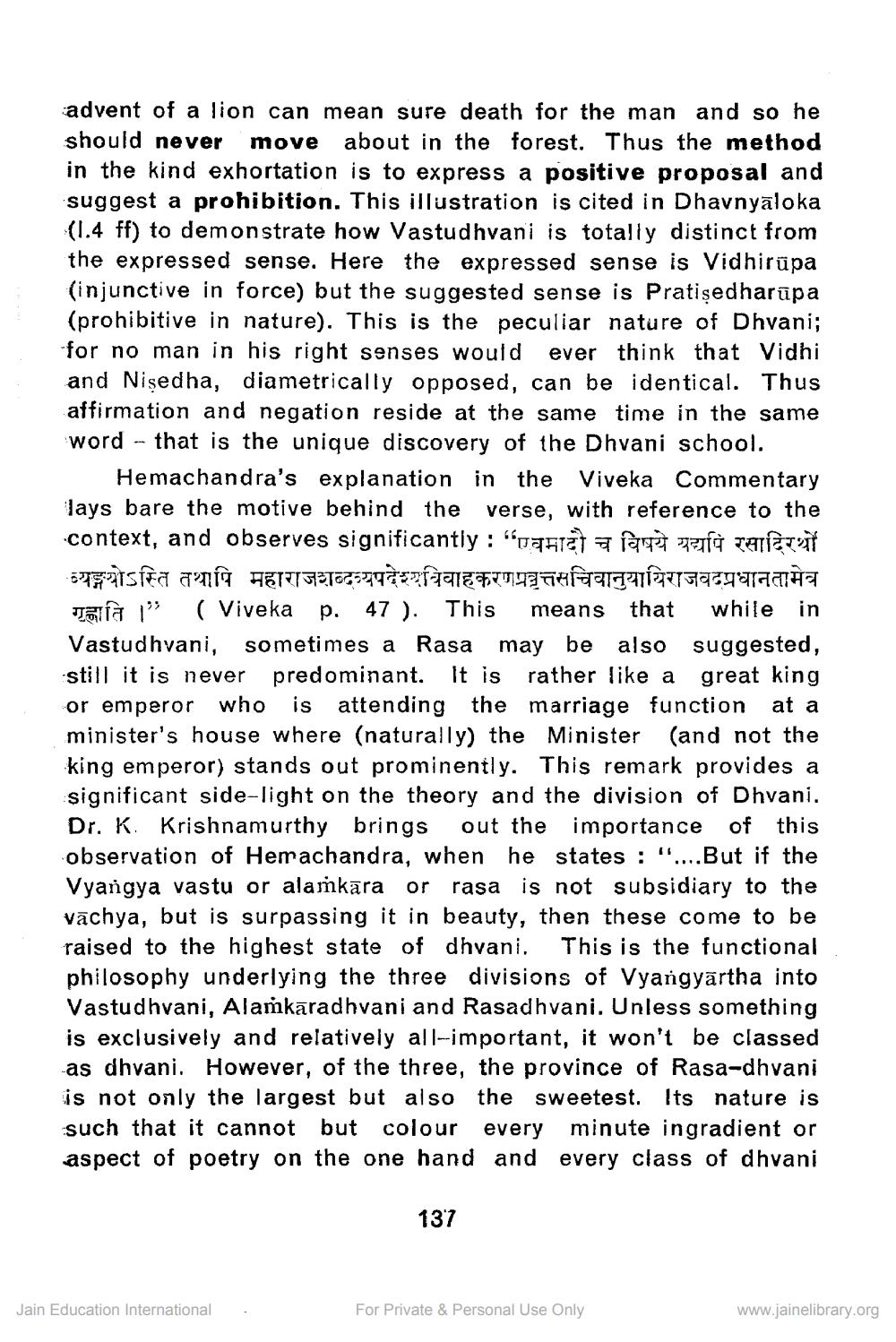________________
advent of a lion can mean sure death for the man and so he should never move about in the forest. Thus the method in the kind exhortation is to express a positive proposal and suggest a prohibition. This illustration is cited in Dhavnyaloka (1.4 ff) to demonstrate how Vastudhvani is totally distinct from the expressed sense. Here the expressed sense is Vidhirüpa (injunctive in force) but the suggested sense is Pratişedharūpa (prohibitive in nature). This is the peculiar nature of Dhvani; for no man in his right senses would ever think that Vidhi and Nişedha, diametrically opposed, can be identical. Thus affirmation and negation reside at the same time in the same word - that is the unique discovery of the Dhvani school.
Hemachandra's explanation in the Viveka Commentary lays bare the motive behind the verse, with reference to the context, and observes significantly : "ht = lat Rafi TETTE व्यङ्गयोऽस्ति तथापि महाराजशब्दव्यपदेश्यविवाहकरणप्रवृत्तसचिवानुयायिराजवदप्रधानतामेव
Taula 1" (Viveka p. 47). This means that while in Vastudhvani, sometimes a Rasa may be also suggested, still it is never predominant. It is rather like a great king or emperor who is attending the marriage function at a minister's house where (naturally) the Minister (and not the king emperor) stands out prominently. This remark provides a significant side-light on the theory and the division of Dhvani. Dr. K. Krishnamurthy brings out the importance of this observation of Hemachandra, when he states :"....But if the Vyangya vastu or alaṁkara or rasa is not subsidiary to the vāchya, but is surpassing it in beauty, then these come to be raised to the highest state of dhvani. This is the functional philosophy underlying the three divisions of Vyangyartha into Vastudhvani, Alamkaradhvani and Rasadhvani. Unless something is exclusively and relatively all-important, it won't be classed as dhvani. However, of the three, the province of Rasa-dhvani is not only the largest but also the sweetest. Its nature is such that it cannot but colour every minute ingradient or aspect of poetry on the one hand and every class of dhvani
137
Jain Education International
For Private & Personal Use Only
www.jainelibrary.org




